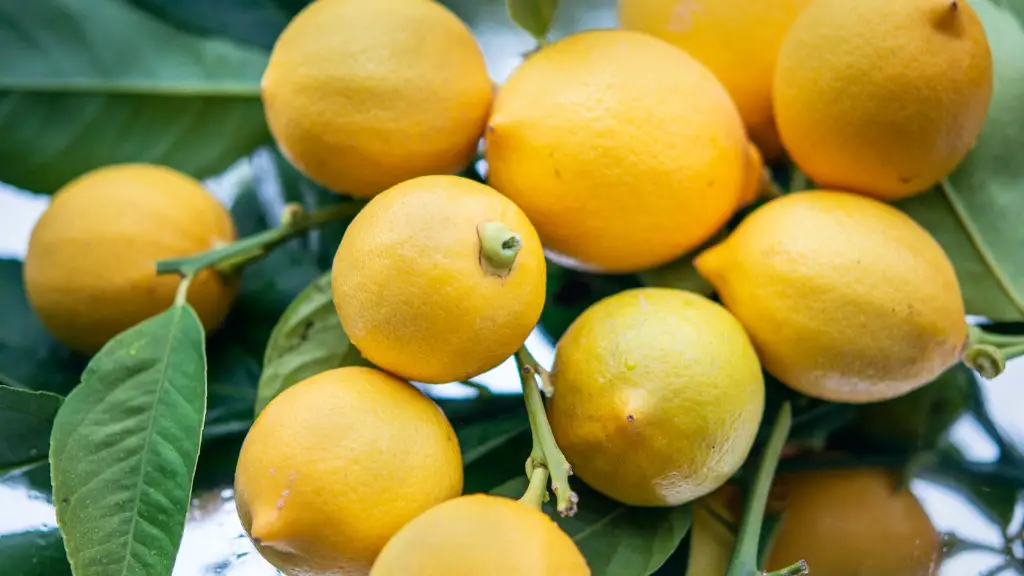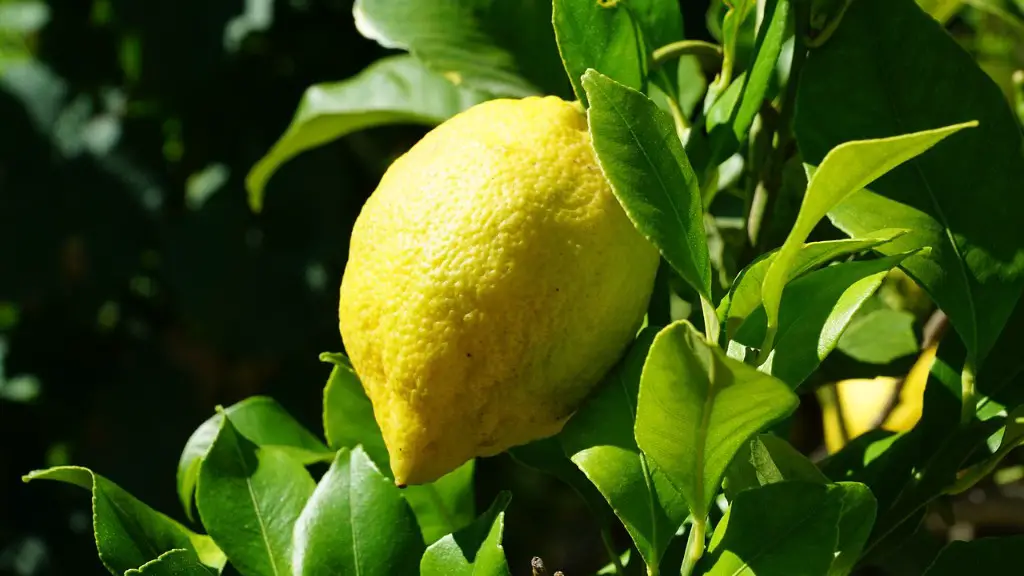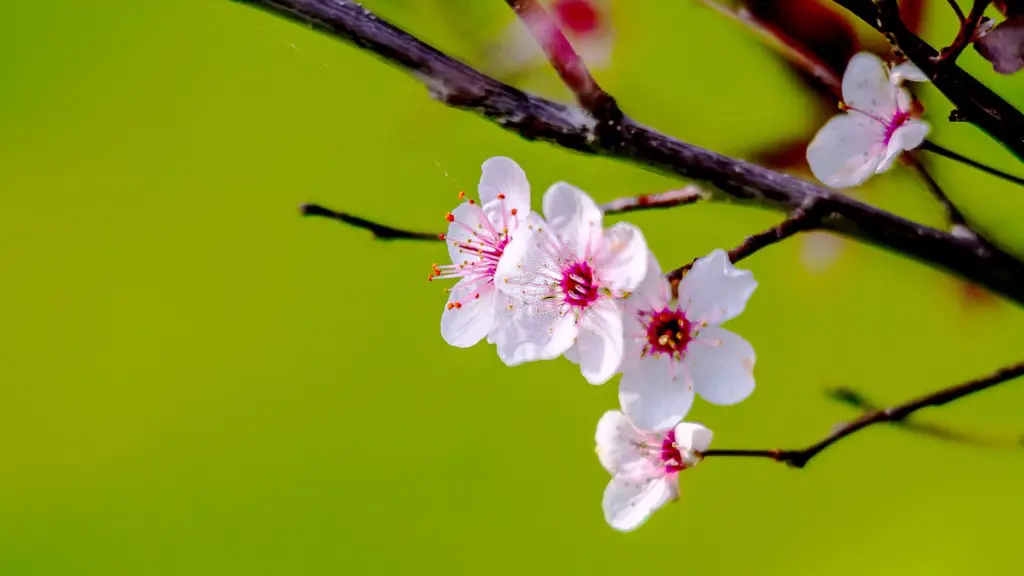It is not uncommon to find lemon trees that are full of flowers but produce no fruit. There are a number of different explanations for why this might be occurring. To start, citrus trees, including lemon, require a specific set of conditions in order to set fruit. Additionally, the lack of pollination or the presence of an insect pest or disease can also play a role. Ultimately, in order for your lemon tree to successfully produce fruit, you need to understand why it may not be doing so.
Firstly, citrus tree can be picky when it comes to their growing environment. More specifically, they cannot survive in areas with sub-freezing winter temperatures or high summer temperatures. To ensure a good fruit set, tress should receive a moderate amount of nitrogen fertilizer and be located in a spot that receives full sun and avoids frost pockets. They also require regular water, and should be well-draining to encourage a healthy root structuring.
Secondly,pollination is necessary for fruit set. Pollinators such as bees, particularly honey bees, are responsible for transferring pollen within a bloom, enabling it to be fertilized, thereby setting fruit. Thus, a lack of pollinators can be an issue. If your lemon tree is in an urban area where bees and other pollinators may be limiting factor, you may need to hand-pollinate yourself or look into companion planting to attract native bees to the area.
Thirdly, certain insects can be a major hindrance when it comes to citrus crops. Mites, mealybugs, whitefly, and scales have all be known to feed on everything from leaves to flowers, depleting essential nutrients and often taking away from the health of the tree. Additionally, different fungal, bacterial and viral diseases have all been known to impact citrus trees’ fruit set positively. Regularly monitoring for signs of disease and pest activity is key for good citrus fruit set.
Fourthly, some varieties of citrus may not be as productive as others. For example, some varieties of lemon tree do not require cross-pollination and may produce fruit without cross-pollination, while other varieties only set fruit if they are cross-pollinated with another citrus species. Understanding the variety of lemon tree that you have can provide you with a better idea of why it may not be producing fruit.
Soil Conditions
The type of soil that your citrus tree is growing in can also greatly affect whether or not it produces fruit. Ideally, citrus tree should be planted in slightly acidic soil with a pH between 5.5 and 6.5. Additionally, the soil should be well-drained and certified as disease-free. Over-watering, poor drainage, and poor soil quality can all lead to root rots and nutrient deficiencies, both of which can severely reduce or eliminate a lemon tree’s fruit set.
Pruning and Watering
Incorrect pruning can also reduce the productivity of a lemon tree. Pruning takes away from the tree’s energy reserves, making it less likely it will produce fruit. Pruning should only be done when absolutely necessary, and new growth should never be removed. Likewise, regular, proper watering is essential for providing the tree with the energy it needs to produce fruit. Citrus trees should receive at least two inches of water a week, divided over two days. This can be accomplished through a combination of rainfall, irrigation, and hand watering.
Fruit Thinning
Finally, lemon trees may not produce fruit due to fruit thinning. This occurs when a lemon tree is over-fruiting, meaning it sets more fruit than it can support. To help with this problem, you can prune the flowers off of the tree in the spring and carefully thin out the remaining fruits on the tree for the rest of the season. This reduces the amount of energy that is being put towards developing the fruits and instead diverts the energy towards increasing the size of the remaining fruits.
Nutrient Deficiencies
If a lemon tree is malnourished, it may be showing signs of nutrient deficiencies. These may include discolored foliage, stunted growth, and poor fruit set. A soil or tissue test can help to determine if there are any nutrient deficiencies in the tree. If so, adding the missing nutrients to your soil may help to improve the tree’s growth and increase its fruit set.
Pest Control
For fungus-based diseases, appropriate fungicides may be necessary for controlling the disease. Copper sulfate and sulfur are two popular fungicides for controlling citrus diseases. Additionally, predatory insects such as ladybugs can help to keep insect pests in check. If nothing else, regular manual removal of insects can help to keep pest populations manageable.
Temperature and Humidity
Finally, temperature and humidity play a large role in whether or not a lemon tree will fruit. Citrus trees prefer warm, humid climates and can begin to yellow and drop fruit if they are exposed to temperatures that are too low or too high. If your tree is in an area where temperatures and humidity could be limiting factors, consider placing it in a greenhouse or other protected environment. Additionally, on hot days, you may want to run a fan or mist the tree to provide a cooling effect.


